Climate change poses numerous threats to our oceans and the diverse and vibrant life within them.
These threats include ocean acidification, toxic algae blooms, and severe declines in key species, to name a few. There is also a strong need for data about the magnitude of these impacts. We support the development of technologies that can help restore balance to ocean ecosystems, with a particular focus on key habitats, such as kelp, coral reefs, and oyster beds. We also look for technologies that monitor, mitigate, and prevent coastal pollution and the spread of invasive species.
Current Partners
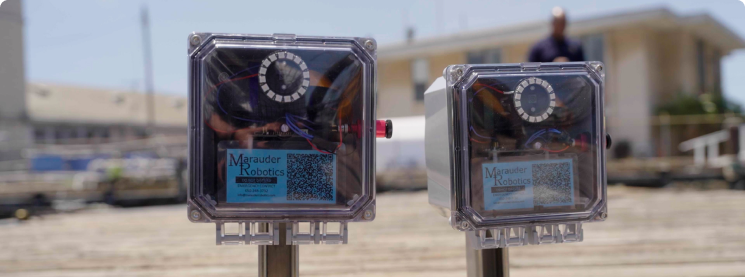
Case Study: Maurader Robotics
Developing an autonomous vehicle that uses machine learning to identify and manage sea urchin populations to restore kelp forests in California and enable better ocean stewardship.
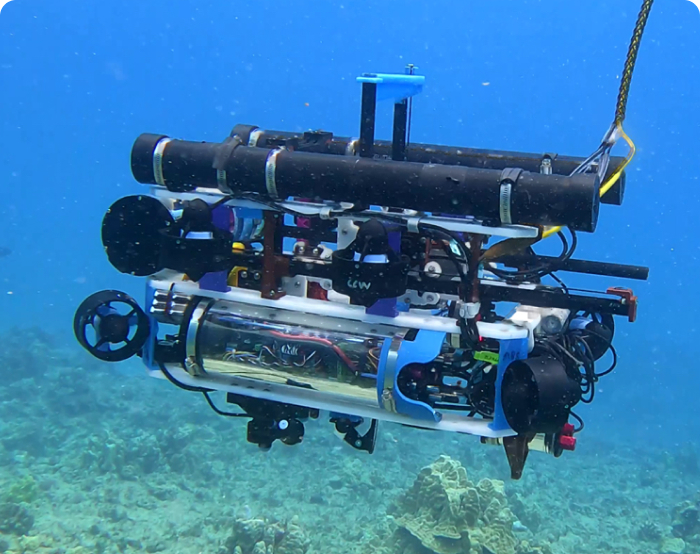
ReefGen
San Francisco, CA
An automated coral & seagrass planting system, to rapidly restore these ecosystems.
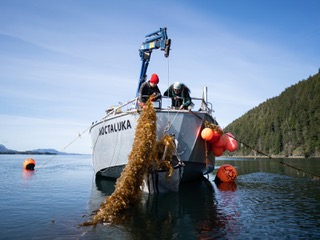
Native Conservancy
Cordova, AK
Native Conservancy is enabling Alaska’s Indigenous coastal communities to thrive in the mariculture industry by increasing access to needed tools, reinforcing capacity building and preparing future generations to steward their oceans.
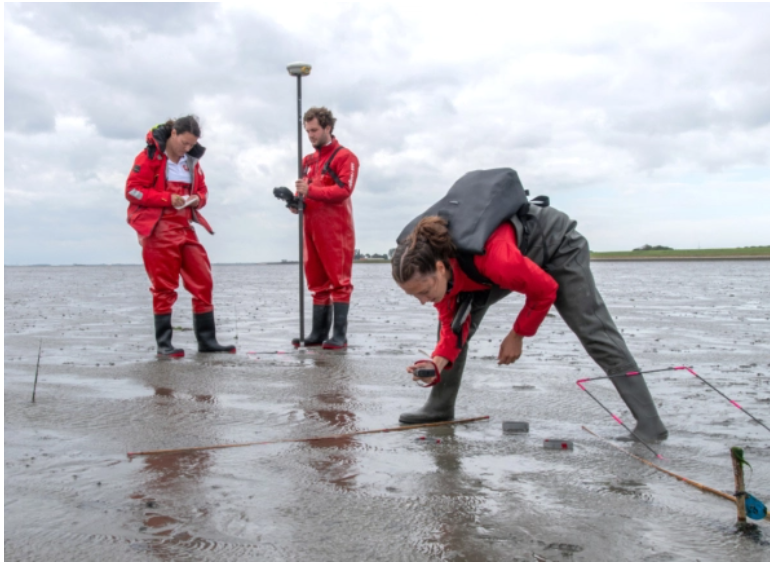
Sea Ranger Service
Amsterdam, Netherlands
Sea Ranger Service trains and employs young people from coastal communities in ocean restoration. Working with Project Seagrass and others, Sea Rangers is currently implementing large-scale seagrass restoration in The Netherlands, France and UK.
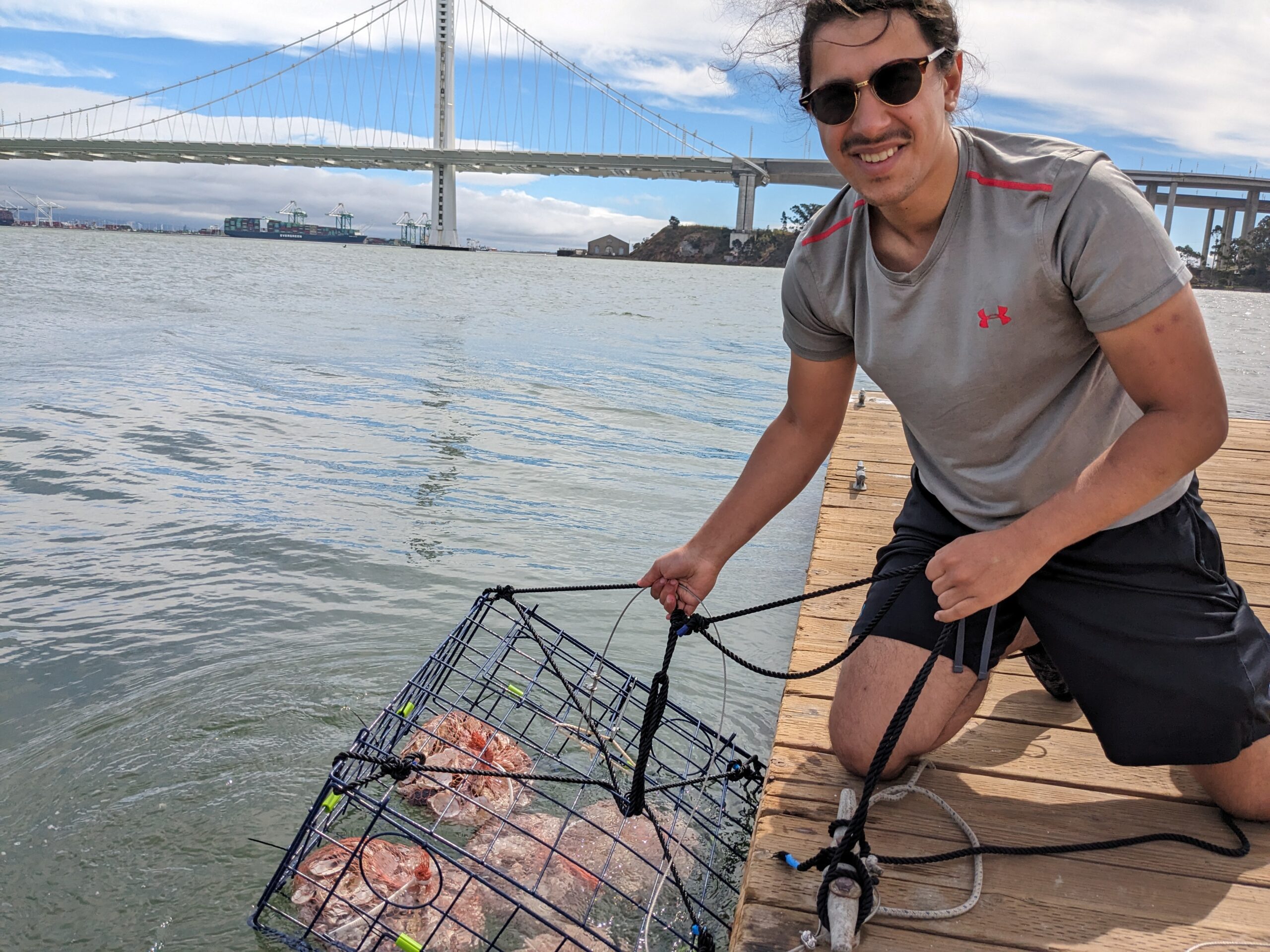
Wild Oyster Project
San Francisco, CA
Wild Oyster Project is restoring oysters back to the San Francisco Bay through shell recycling, restoration and community engagement.
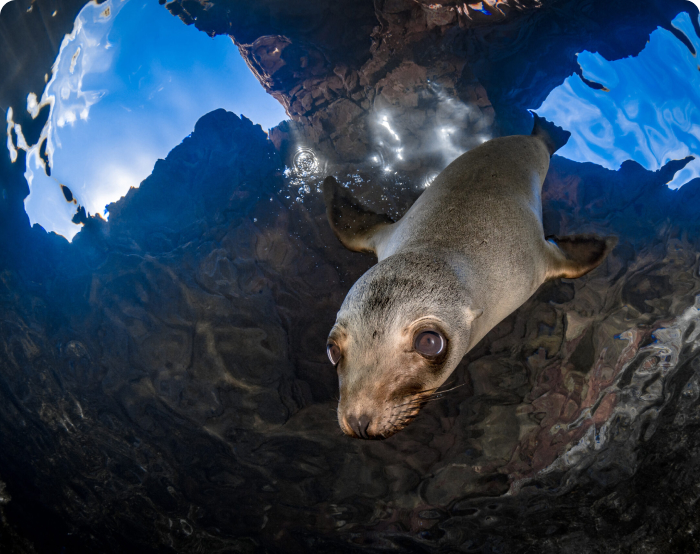
Ocean Visions
Atlanta, GA
Building a roadmap to thoughtfully increase the ocean’s ability to sequester carbon, in partnership with leaders in ocean conservation.
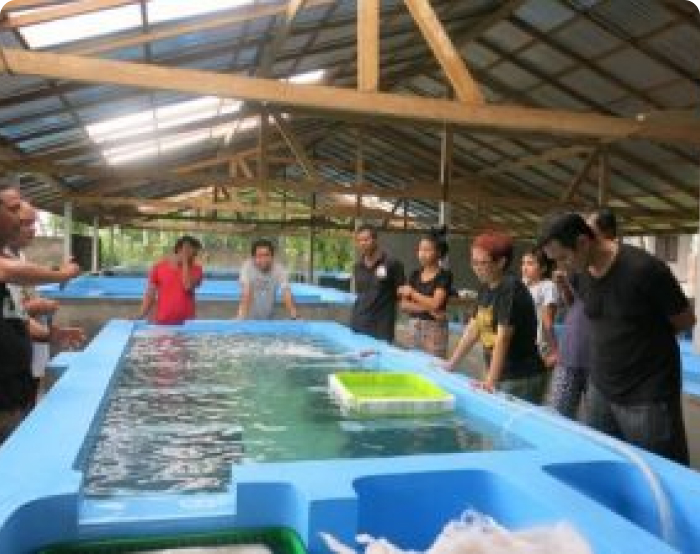
The Indonesian Nature Foundation (LINI)
Les Village, Bali, Indonesia
Supporting the conservation and management of coastal marine resources with a focus on reef restoration.
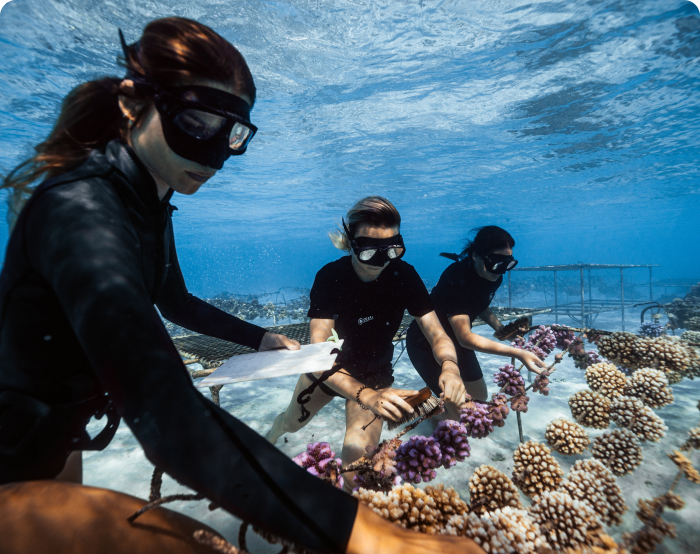
Coral Gardeners
Les Village, Bali, Indonesia
Coral Gardeners is revolutionizing ocean conservation and creating a global movement to save the reefs through active restoration efforts, led by science, powered by innovation, and amplified with community awareness.
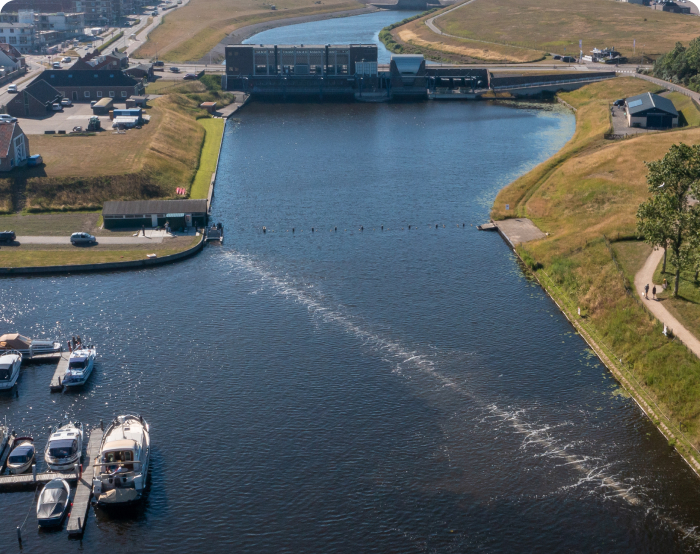
Great Bubble Barrier
Amsterdam, Netherlands
This technology stops plastics from flowing past, but it also allows fish and ships to pass through the barrier unimpeded.
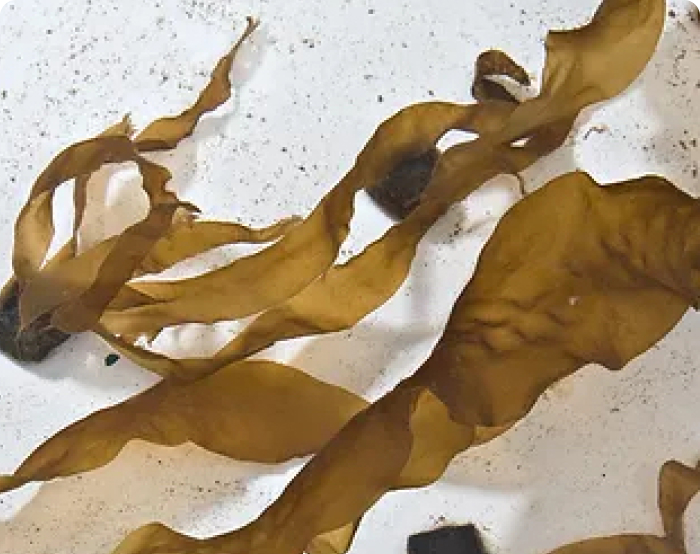
Green Gravel
Perth, Australia
A novel kelp restoration technique that involves seeding small rocks with juvenile kelp, rearing them in a lab or other facility, and then outplanting them in the field.
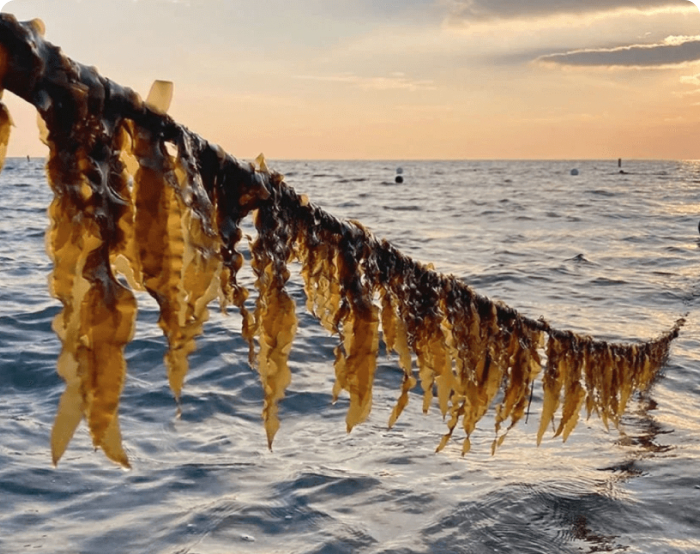
GreenWave
New Haven, CT
This vertical farming system grows a mix of seaweeds and shellfish that require zero inputs, generating sustainable seafood while sequestering carbon and regenerating the marine ecosystem.
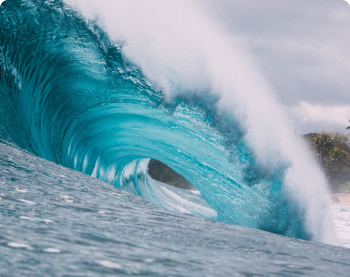
Save the Waves
Santa Cruz, CA
Mobilizing communities to protect coastal ecosystems across the globe from pollution, development, and other threats.
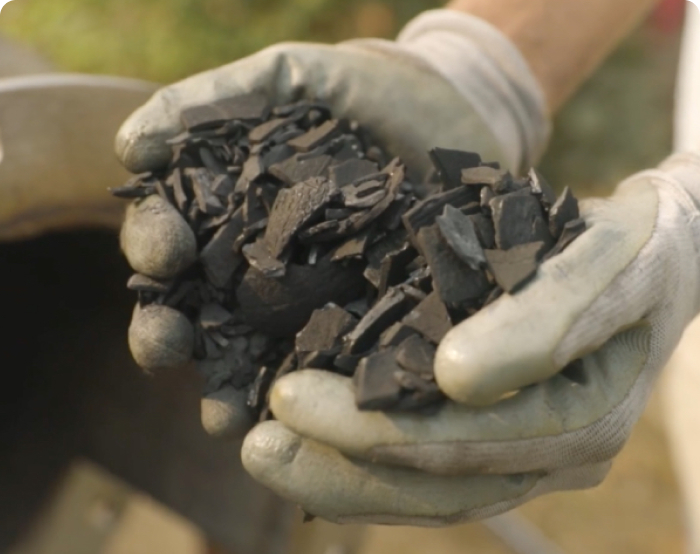
Takachar
Boston, MA
Building a decentralized model allowing farmers to produce their own biochar out of biowaste. Applying biochar to their crops reduces nutrient runoff into waterways, sequesters carbon, and increases crop yields.
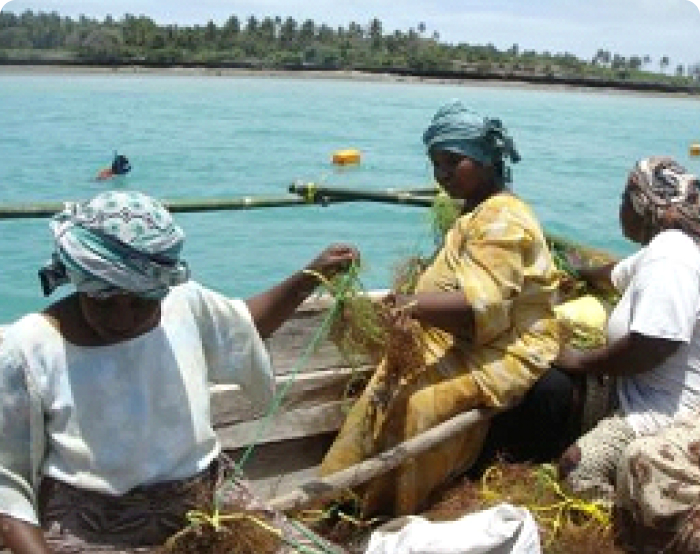
Zanzibar Seaweed Cluster Initiative
Zanzibar, Tanzania
A community organization working to improve the livelihoods of local seaweed farmers and increase understanding of both seaweed science and seaweed’s economic value.
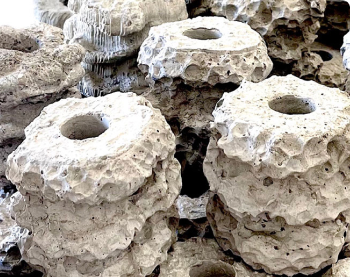
Grow Oyster Reefs
Charlottesville, VA
In partnership with the Virginia Institute of Marine Science, they’re developing ecosystem restoration techniques that stimulate the complementary growth of oysters and seagrass on manufactured tiles.
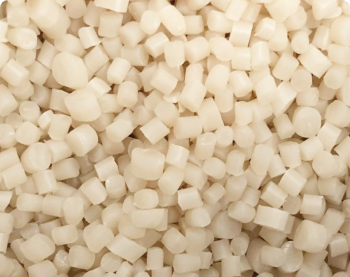
Mango Materials
Albany, CA
A renewable byproducts company delivering bio-based, biodegradable alternatives to plastic. They are currently investigating ways to apply their technology to remove pollution from coastal waterways..
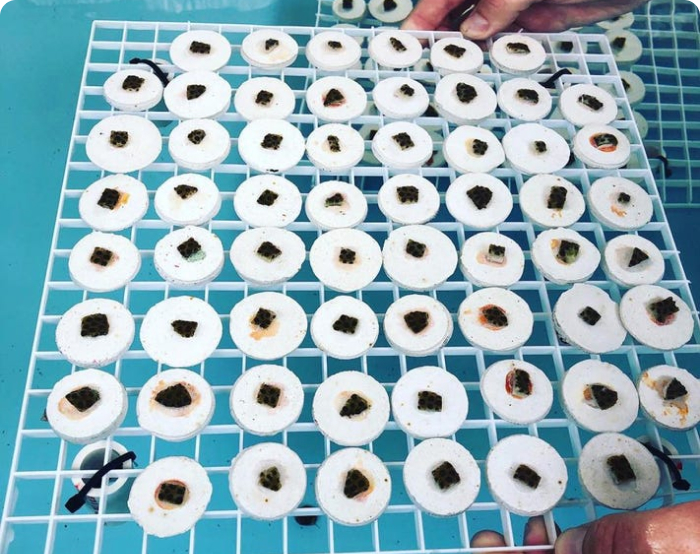
Plant a Million Corals Foundation
Sarasota, FL
Rapidly accelerating coral growth for restoration through micro-fragmentation at a rate that is 25-40 times faster than they occur naturally on the reef.
View All Partners
For a full list of partners both past and present, visit the Schmidt Marine Partner Directory.
Want to Partner With Us?
Learn more about our process and submit your own proposal.